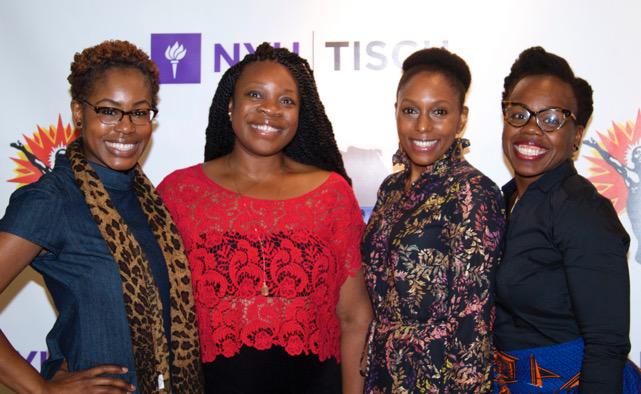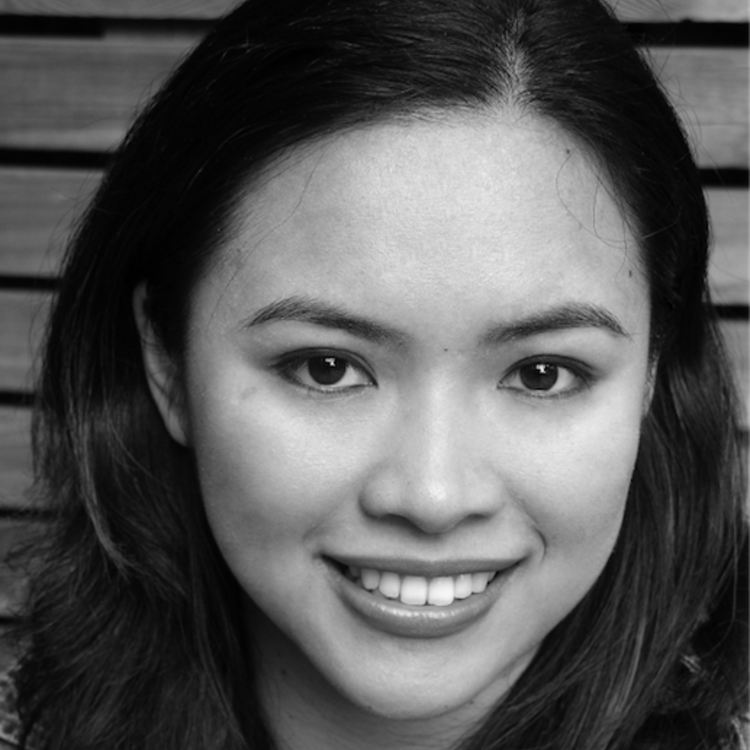2016 NOW AFRICA Playwrights Festival
I am an adjunct lecturer in Brooklyn College where I've been one of the instructors teaching in the STAR program at Erasmus, an early college high school where I teach predominantly black kids. In the five years I've been involved in the program, I learned that there is a lot I don't know, and that the conversation around race is something that I had to participate in even if all I do is listen. My students have helped me become a better teacher, and I owe them by seeking out more knowledge and understanding, so when I learned about the NOW AFRICA: Playwrights Festival (a three-day festival revolving around one theme), I had to go to see what I could bring back to my students. I was particularly interested in Day 1's programming, and this article focuses on those events.
For many people attending Brooklyn Museum’s annual Afropunk festival, the curated showcases from fashion to music is a celebration of black diversity across continents. Not everyone feels this way, however. In seeing what she deemed incongruous fashion combinations in the 2015 Afropunk festival, blogger Zipporah Gene asked, “Can Black people appropriate one another?” In her article “Black America, please stop appropriating African clothing and tribal marks,” the answer is a resounding yes. African Americans can and do appropriate African culture, and she wasn’t having it. Thus began the process behind the theme of the 2016 NOW AFRICA festival: “Africa and her Children—Bridging the Continental Divide.”
True to its playwriting roots and using theatre as the vehicle of inquiry, the core of the opening panel was the fundamental question of being.

In playwright and Artistic Director of NOW AFRICA: Playwrights Festival Mfoniso Udofia’s vision, the contentious point Zipporah Gene asks is the springboard for conversations about authenticity, appropriation, and authority within the Black diaspora. In a sleight of hand, worthy of the best theatre of our time, Ghanaian-American director Awoye Timpo directed a piece conceived by Udofia, which used the polarizing voices of Gene’s blog post, YouTube vlogger and writer Jouelzy’s rebuttal “Black Americans Don’t Appropriate African Culture,” and the various commenters from Gene’s blog post. This ten-minute reading and performance encapsulated the opposing views of expressing black identity. These strains of blackness presented in Udofia’s piece are two households, both alike in dignity and the indignities they face, like a coin whose two sides cannot make heads or tails of the other.
As Udofia said in an e-mail interview:
As a company we are focused on the intersection between academia and theatre. Anytime we are able to honestly present work theatrically, we make the attempt. To that end, when theatrically presenting parts of the comment section, we tried to pick comments that ranged the gamut. We did not want to pick a side, so we went for comments that felt authentic and took a stance on Zipporah Gene's original article.
True to its playwriting roots and using theatre as the vehicle of inquiry, the core of the opening panel was the fundamental question of being. Every single descendant from Africa—whether African, Afro-Latin, Afro-Caribbean, African-American, Nigerian-American, Mixed Race, Jamaican national, or Black (as reflected by the different identity markers of each of the artists in the playbill)—confronts this question at one point. Am I African (or Black)? Or am I African (or Black) enough? Worse yet, others who identify as members of the Black community extend this query in judgment of those who they don’t deem Black enough to their taste. Even President Obama was not immune to this.
This topic of categorizing identity and the black body also makes an appearance in mainstream literature. In his book Between the World and Me, Ta-Nehisi Coates notes that prior to the New World, there was no such thing as race as we now know it; the categories of “black” and “white” resulted in the new hierarchy of the New World. Before people belonged to races, they belonged to tribes. He writes, “Race is the child of racism, not the father.” But within a race, a clash in the name of authenticity and authority cannot be avoided as illustrated by the perspectives brought up by this year’s theme.
One of the attendees responded to the panel and mentioned that “[Zipporah] has a point. But it’s the tone of the point that put me off…but she has a point because we can just search for anything now online, so we have no excuse.”
Playwright and screenwriter Keith Josef Adkins, who was part of the panel, said that when he was growing up, there was mockery of and shame towards Africa because it was deemed as less than. He detailed the history of his family who had gone to Liberia, and how there was a feeling of superiority that the Americans had towards their African counterparts. He then posed a rhetorical question: “How much of what we do is part of ‘white entitlement’ as part of our Americanism?”
Afro-Latina and interdisciplinary theatre artist Jadele McPherson also noted: “[This entitlement] privileges the written work, the archive. How do we understand what is not recorded, but what is embodied? I can’t just Google ‘Yoruba’ and know what that means. It’s a lived experience.”
There is a need for conversation between people of the African Diaspora. Spaces are needed for us to gather, express, unpack...heal. —Mfoniso Udofia
The theatremakers most vocal following the panel discussion were performers who experienced firsthand how their black bodies are categorized. Patrice Johnson, a classically-trained Jamaican-born actress who once played Desdemona opposite Sir Patrick Stewart asked: “How do you see the Black female body?…[it exists] as either fear or fetish.” In a conversation after the panel discussion, she said that the realities of theatre demand that she, as an actress, take on work that is from someone else’s vision of the African body and use it to decorate the stage, and further complicated by gender—it is feared or fetishized. For the most part, Patrice is relegated to minor roles in the classical canon. She posed this question: “Why does Juliet need to be white? Why is it that if we have black bodies on stage, it needs to be set in Africa?” In response to Patrice, panelist Professor Gwendolen Hardwick said: “This is why we need to take center stage. Center stage. We need to claim and believe in our own stories.”
Then, in an impassioned speech regarding the authenticity of her African identity to other African theatremakers, Actress Zenzi Williams said: “Sometimes I feel like I am an unwanted child, like I am in between America and Africa.” She later added: “They want to give more opportunities to ‘their people,’ and I want to ask them, but am I not your people too?”
“This is all about healing,” Adkins said. He also added, “When I hear Zipporah’s words. It’s about hurt. When I read Jouelzy’s response to Zipporah, it’s about hurt too.” This sentiment reflects what Udofia said as the intention behind this year’s theme: “There is a need for conversation between people of the African Diaspora. Spaces are needed for us to gather, express, unpack...heal.” This festival underscores that theatre is not just a venue, but that it is, more importantly, a vessel to understand and honor what is not recorded.


Comments
The article is just the start of the conversation—we want to know what you think about this subject, too! HowlRound is a space for knowledge-sharing, and we welcome spirited, thoughtful, and on-topic dialogue. Find our full comments policy here
NOW AFRICA is so very necessary to our collective artistic legacy.